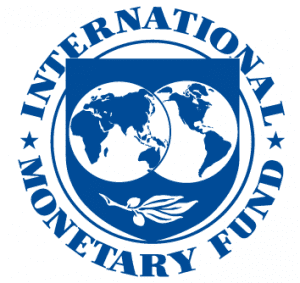IMF and World Bank are going to advise against having a bilateral currency for 1 week

IMF and World Bank announced that they are going to hold a meeting this week to find a solution to stop the bilateral foreign exchange market in Ethiopia.
It has been stated that the meeting will be held side by side with the annual spring meeting of the two institutions, (IMF and World Bank) which started this week.
The Ethiopian delegation, including the governor of the National Bank of Ethiopia, Mamo Mehretu, and the finance minister, Ahmed Shede, is in Washington to attend the summit.
IMF and World Bank are going to advise against having a bilateral currency market in Ethiopia on the coming week
In the joint discussion held by World Bank President Davey Mallyas and the IMF Director General Christina Georgios, expressed their hope that a solution can be found from the conference, especially how countries like Ethiopia can get out of their complex problems. According to the World Bank president, most of the 120 million people in Ethiopia are suffering due to the bilateral market system. It is been Four years since the president of the World Bank comes to their position and both officials David Mallyas and Christina Georgios visited Ethiopia in 2019.
“The bilateral currency market in Ethiopia has been a major bottleneck. The illegal parallel market is also very expensive and serves only a few. Therefore, the Ethiopian currency market could not be effective. so the main aim of the IMF and World Bank gathering up is to solve this problem,” said David Malias. The officials pointed out that a concrete decision regarding debt transfer is expected from this meeting. What is more, is that it is expected that lenders will consult with borrowers around the same table for the first time.
The meeting will be held from Monday to Sunday. However, to benefit from the debt transfers of developing countries agreed to by rich countries and other lenders under the guidance of the IMF, Ethiopia has been asked as a condition for currency unification.
To unify the legal currency market and the parallel market, it is mandatory to reduce the purchasing power of silver to at least double its current level (Devaluation) and equalize the black market, sources said.
The reporter’s sources stated that the IMF’s expert team, which visited Addis Ababa in the last two weeks, reinforced this position and explained it to the Ethiopian authorities.
“IMF and World Bank do not think that Ethiopia has a shortage of foreign currency. They conclude that the problem is currency management. For this reason, their recommendation is to lower the purchasing power of silver again and make the black market currency equal to its current level.
After that, they think that the black market will not be able to go higher than the current average of around 100.00 Birr or it will take a long time,” says an economic consultant who is close to the issue.
According to a consultant, the national bank where the decision was implemented will soon reduce the purchasing power of silver, which has not been controlled in the past years.
However, although this decision may bring more foreign currency to the National Bank, the side effect is to favor imported products and worsen the inflation in Ethiopia, they say.
In a brief statement released by the IMF expert group, which concluded their week-long stay last Saturday, they stated that they have reached an agreement with the Ethiopian government to support indigenous economic reform number two.